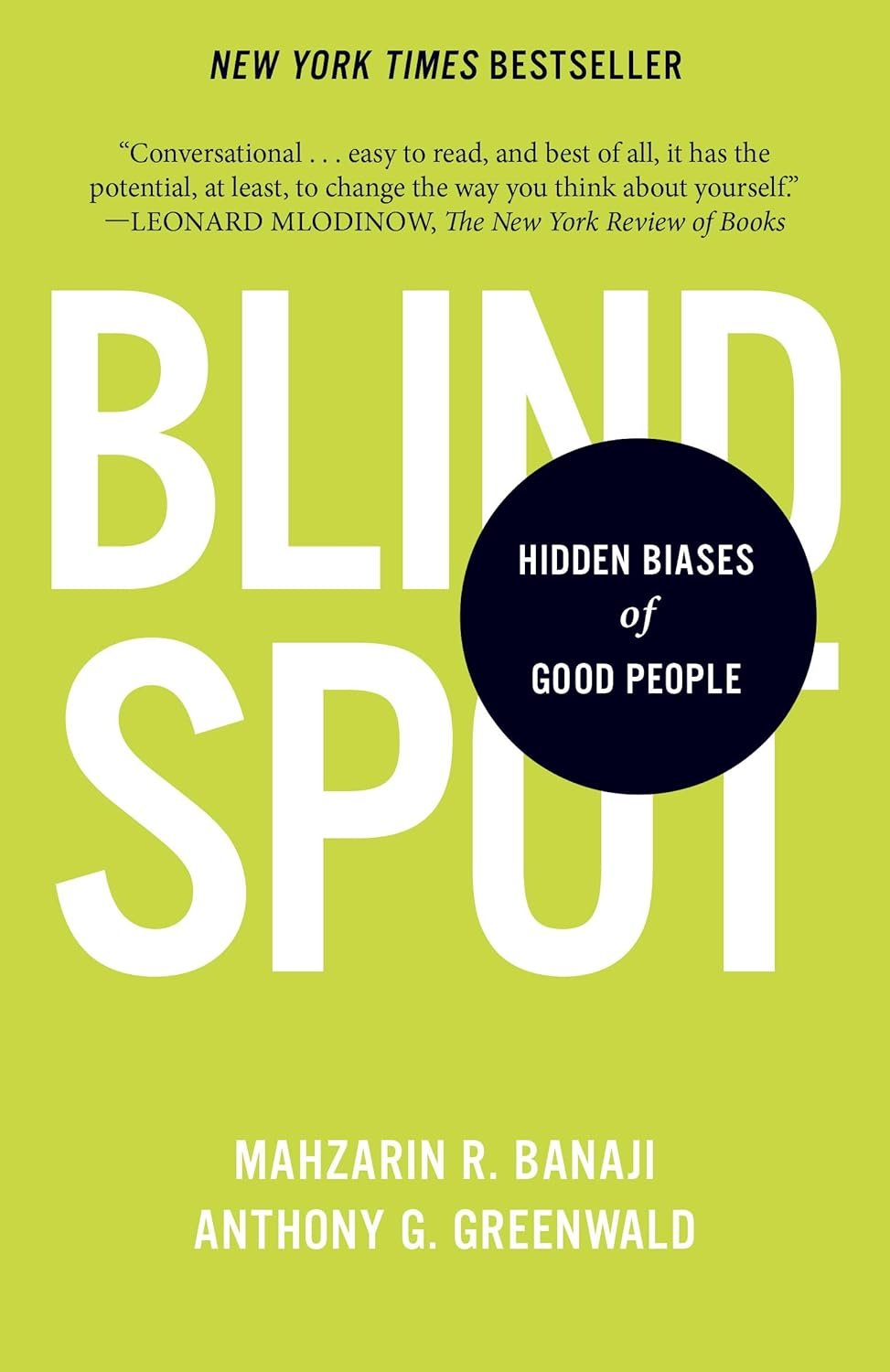Blindspot: Hidden Biases of Good People
By Mahzarin R. Banaji and Anthony G. Greenwald delves into the subconscious biases that influence our behavior. Even well-intentioned individuals have biases that they're unaware of, and these biases can affect decisions and actions.
Key Concepts from the Book:
Implicit Bias:
Refers to the attitudes or stereotypes that affect our understanding, actions, and decisions in an unconscious manner.
These biases are automatic and are rooted in our brain's innate capacity to categorize information.
Implicit Association Test (IAT):
A tool developed to measure a person's automatic association between mental representations of objects in memory.
Can be used to reveal hidden biases by measuring the strength of a person's automatic association between concepts.
Malleability of Bias:
While many biases are deeply ingrained, they are not unchangeable.
Exposure to counter-stereotypical examples can reduce the effects of implicit biases.
Mindbugs:
The term the authors use to describe ingrained habits of thought that lead to errors in how we perceive, remember, reason, and make decisions.
They are a result of the brain's design, but they can lead to biased and incorrect judgements.
Consequences of Biases:
Implicit biases can affect various aspects of life, including employment decisions, medical diagnoses, and judicial verdicts.
Even those who consciously advocate for equality may unknowingly harbor biases that can lead to discriminatory behavior.
Self-Insight:
It's difficult for individuals to recognize their own biases.
Introspection alone is often insufficient to recognize these biases, which is why tools like the IAT can be enlightening.
Addressing and Overcoming Biases:
Recognizing one's own biases is the first step toward addressing them.
Continuous self-examination, exposure to diverse groups and perspectives, and education can help in reducing the impact of these biases.
In essence, "Blindspot" sheds light on the hidden biases that we all carry with us, emphasizing the importance of understanding and addressing these biases in order to make more informed and equitable decisions.
Here is the link to the book on Amazon.


